Irked by genocide report, Myanmar army chief says UN has no right to ‘interfere’
Striking a defiant tone, Myanmar’s army chief says the United Nations has no right to meddle in his country’s “internal" issues, a week after the world body’s investigators called for him and fellow top generals to stand trial for “genocide” against minority Rohingya Muslims.
In a report released last Tuesday, UN investigators had said Myanmar’s Rohingya Muslims faced four of five prohibited acts defined as genocide at the hands of Myanmar’s military in the northwestern state of Rakhine, where the minority group is mainly based.
The report also said Myanmar’s military – which has members in the parliament -- should be removed from politics and stripped of further influence over the country’s governance.
Hours later, the International Criminal Court (ICC) said it had opened a preliminary investigation into the military’s crimes, including killings, sexual violence and forced deportations, against the Rohingya Muslims, hundreds of thousands of whom have fled their villages in Rakhine to neighboring Bangladesh.
In his first public reaction to the UN’s stance, Myanmarese commander-in-chief Min Aung Hlaing told his troops during a speech on Monday that no country, organization or group has the “right to interfere in and make decision over sovereignty of a country,” the military-run Myawady newspaper reported.
“Talks to meddle in internal affairs (cause) misunderstanding,” he added, rejecting UN calls for Myanmar’s army to stay out of politics.
“Take a look at the democracy practices in the world, the countries exercise the democracy system suited to them,” said the general.
Last week’s UN report came a week after representatives of the UN Independent International Fact-Finding Mission on Myanmar said at a presser that the country’s army, led by Min, had carried out the “gravest crimes” against the Rohingya – including mass killings and rape -- with “genocidal intent.”
Last year, Myanmar’s armed forces, backed by Buddhist extremist mobs, launched a state-sponsored crackdown campaign against Rohingya Muslims in Rakhine, using a series of attacks on military posts by gunmen they linked to Rohingya as a pretext.
The crackdown – described by UN rights officials as a textbook example of ethnic cleansing – forced over 700,000 Rohingya to flee to neighboring Bangladesh, where they are camped in overcrowded refugee centers in dire living conditions.
Rohingya Muslims, who have lived in Rakhine State for many generations, are denied citizenship and branded illegal immigrants who hail from Bangladesh, by Myanmarese officials.
Aung San Suu Kyi, Myanmar’s de facto leader and Nobel Peace Prize laureate, has come under fire -- including in the latest UN report and by prominent human rights organizations -- for remaining silent on the military’s brazen brutalities against the minority community.
VIDEO | London's Muslim Shopping Festival kicks off
VIDEO | Killings continue in Gaza as aid restrictions, arrests draw intl. criticism
VIDEO | Defending sovereignty: Iraq's annual conference celebrates anti-terror icons
Mossad-linked terrorist ringleader trained for ‘urban warfare’ neutralized by Iranian intel. forces
Mediterranean dockworkers stage coordinated strike in solidarity with Gaza
US intel. chief blocked report on ‘call between foreign agent and Trump associate': Whistleblower
VIDEO | Al-Zahra: Once vibrant Gaza City reduced to ruins in Israeli bombing and selling
Iraqi volunteers enlist to support Iran against potential US attack


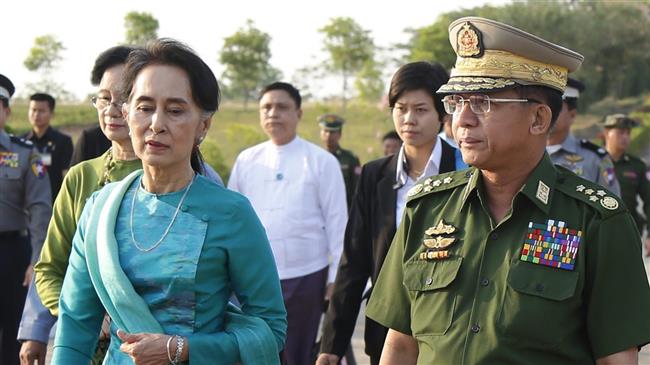


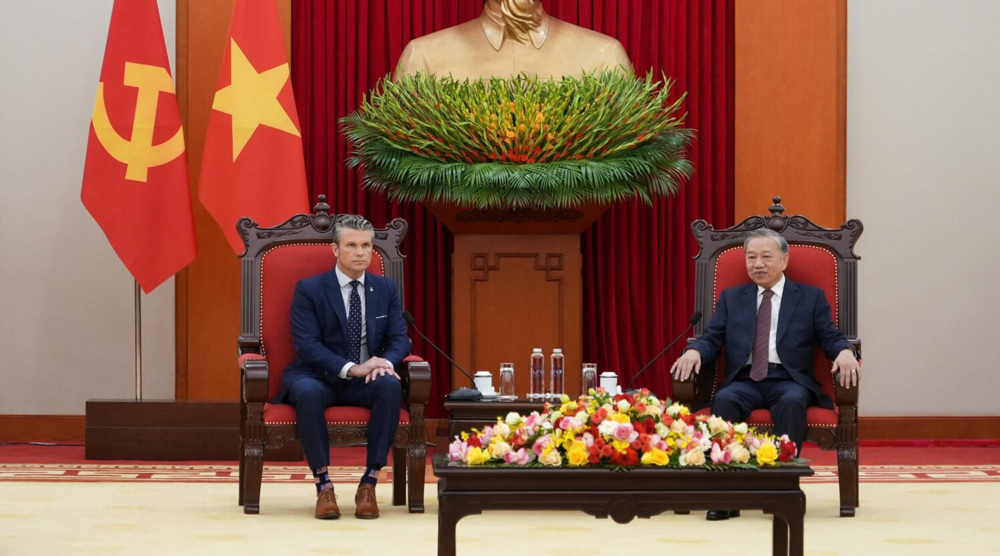
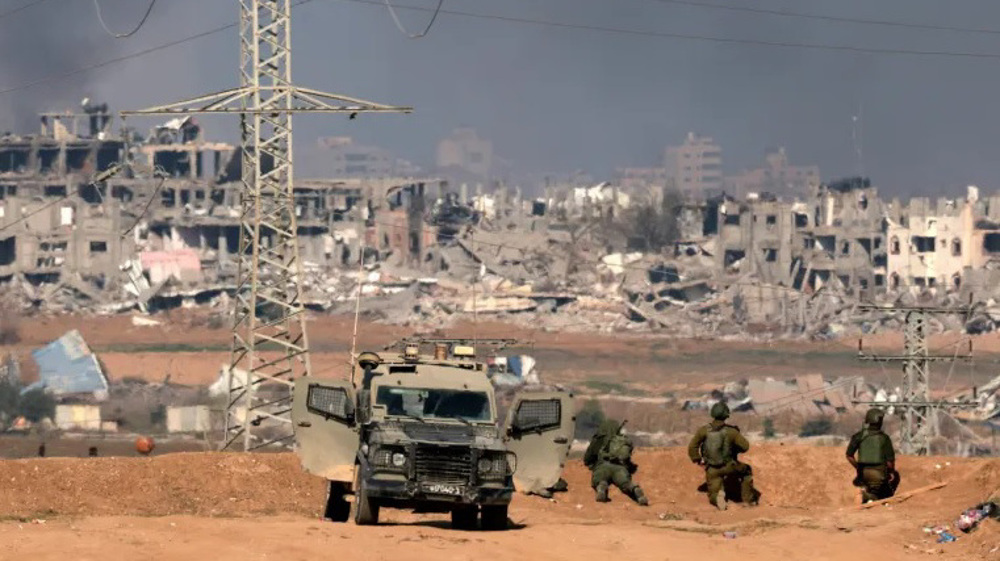
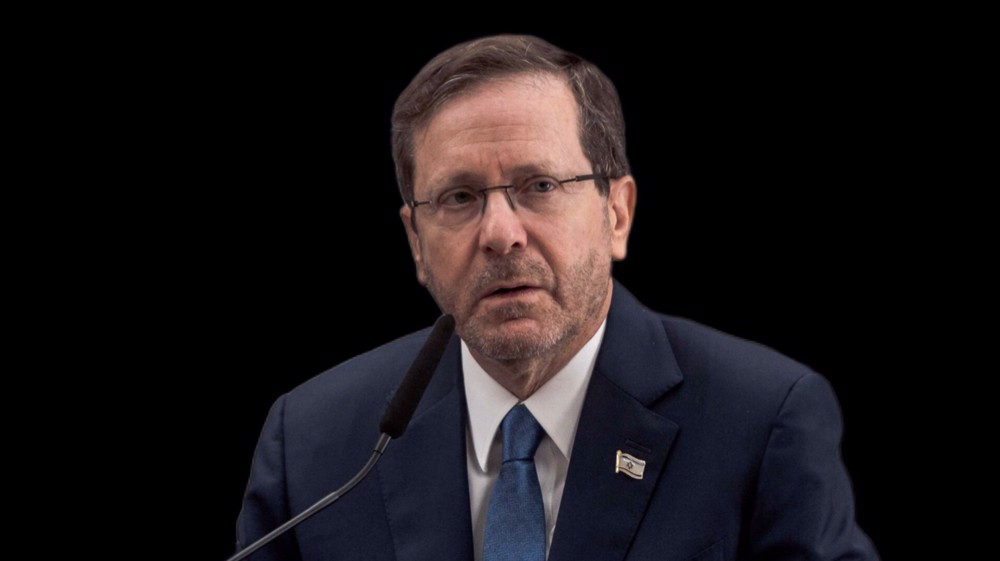



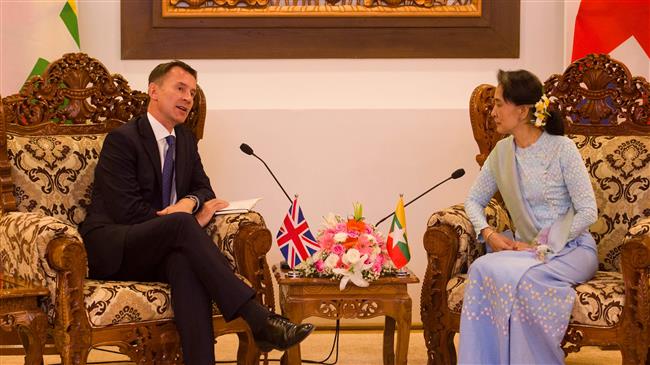

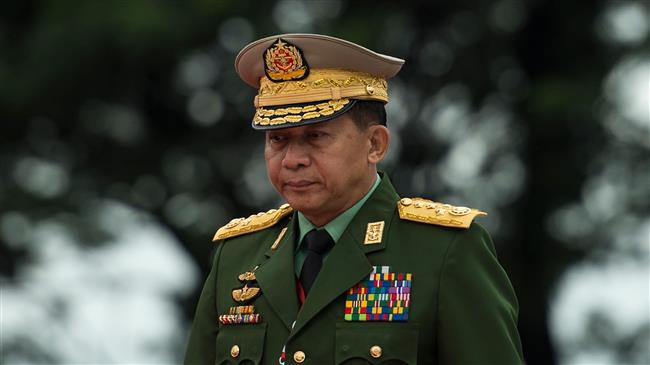



 This makes it easy to access the Press TV website
This makes it easy to access the Press TV website